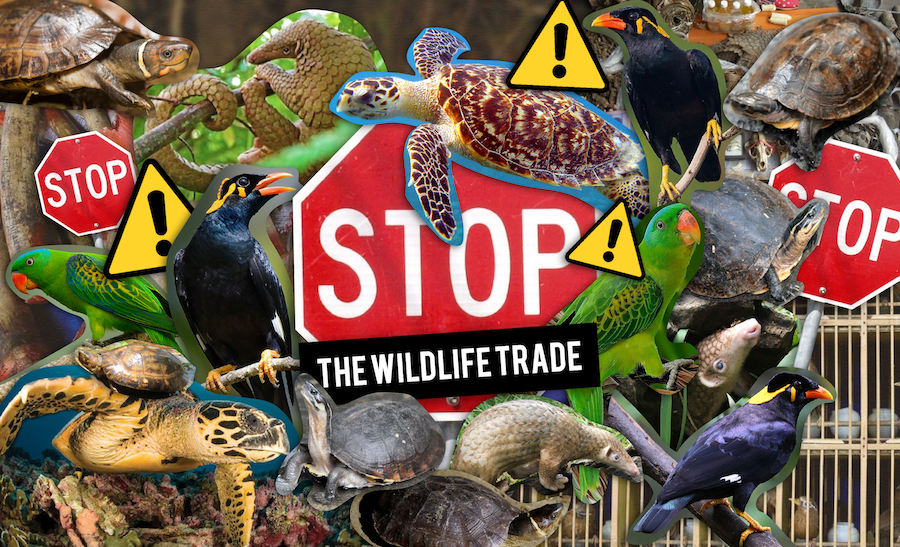THE ILLEGAL Philippine wildlife trafficking industry is worth an estimate of Php 50 billion a year, becoming a driving force of trade in Southeast Asia. Due to the country’s strategic location and geographical history, it is home to species of plants and animals often targeted by illegal poachers. The lack of penalties and the increasing demand for exotic animal products such as food, ornaments, and traditional Chinese medicine ingredients allow for poaching practices to thrive in the local economy.
Consequently, several endemic species are now at risk of extinction, threatening biodiversity and ecological stability in the Philippines. If the loss of these species persists, it may devastate the ecosystem and the cultural heritage of this country.
Biodiversity hotspot
The Philippines is a major biodiversity hotspot due to its position within the Coral Triangle—an area with around 600 species of reef building coral—and the diversity of endemic species in its numerous islands. Palawan Island, home to its own array of flora and fauna, is a hotspot for trade. Its unique geographical and historical narrative of being formerly connected to Borneo gave rise to the various species endemic to the area.
Species endemic to Palawan, such as the blue-naped parrot, Palawan hill myna, box turtle, and Palawan forest turtle are sold as pets. Meanwhile, the hawksbill turtle is captured for its meat, shell, and carapace, and the Palawan pangolin is harvested so that its shell can be used for traditional Chinese medicine.
Due to overhunting, the International Union for Conservation of Nature has already listed the Palawan pangolin, hawksbill turtle, and Palawan forest turtle as critically endangered. The removal of endemic species that play a key role in food webs and nutrient cycles causes the island’s ecosystem to suffer a gradual and steady decline. For example, without hawksbill turtles, corals will decline and be unable to compete for space and nutrients due to the resulting population boom of sponges, the natural prey of turtles.
Exploited for money
The market for products of exotic species is influenced by desire and tradition—the rarer the species, the higher the price. Many poachers and smugglers from poorer communities hunt these animals using methods passed down from generations. The increasing popularity of certain exotic animals paved the way for more innovative smuggling strategies such as handoffs in open water and stuffing vans with wildlife. These poor transportation conditions result in many animal casualties often caused by stress, dehydration, and starvation. Poaching can also be driven by misinformation, as seen in the 2011 tuko (gecko) craze, where geckos were sought out because of false rumors about how their gall bladders can cure diseases.
Policies like the Wildlife Resources Conservation and Protection Act of 2001 aim to protect endemic species from the abuses linked to the illegal wildlife trade. However, its sanctions are insufficient in discouraging traders—as evidenced by poor conviction rates. Ateneo de Manila University Biology Department Assistant Professor Ronald Cruz pointed out that corruption and poverty are the main driving forces of the illegal wildlife trade in Southeast Asia. Practices such as bribery, patronage, permit abuse, and the overall lack of environmental education allows the proliferation of illegal wildlife trade.
Cruz recommended these measures to put an end to illegal wildlife trafficking: Strictly enforcing wildlife laws, disincentivizing the illegal trade, providing alternative livelihoods for poachers, and breaking the chain of trade from poachers to middlemen. These are all steps that must be taken to protect endemic species and preserve the country’s vital ecosystems.




